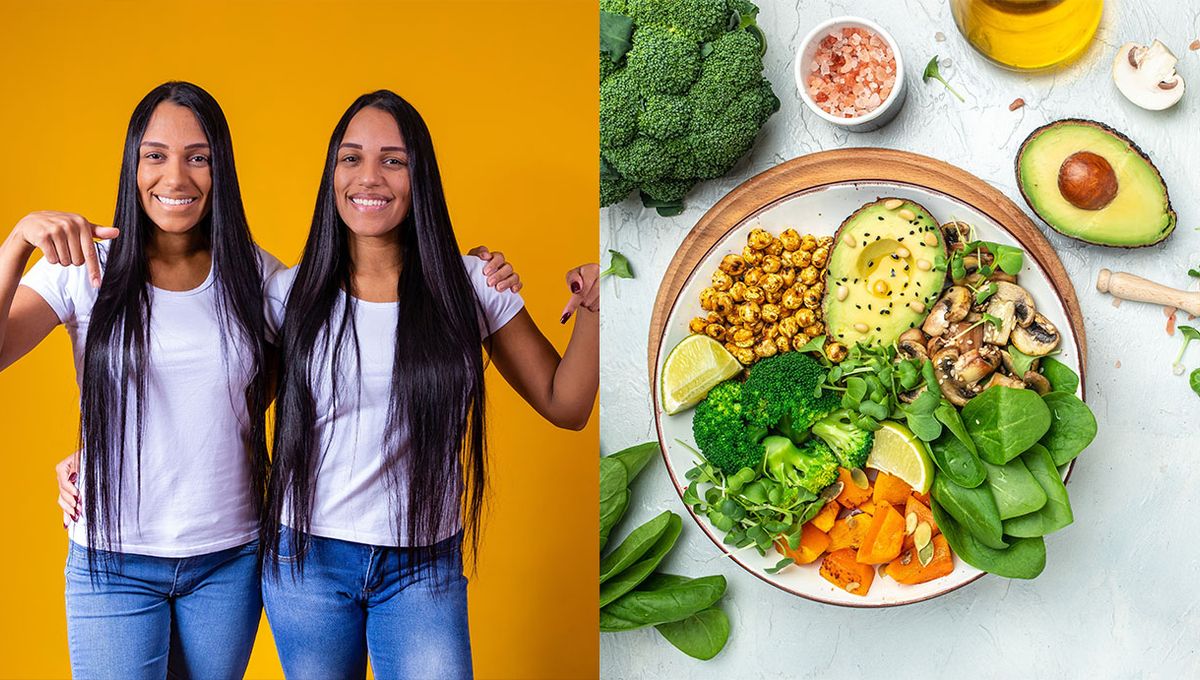
It’s often said there are no quick fixes when it comes to our health. A new study out of Stanford, however, has shown that to be false – at least, if we’re talking about our hearts.
“Our study… suggests that anyone who chooses a vegan diet can improve their long-term health in two months,” senior author Christopher Gardner, a professor of medicine in the Stanford Prevention Research Center, said in a statement on the new findings.
“Most change [is] seen in the first month,” he added.
It’s long been known that eating less meat is associated with an improvement in cardiovascular health, but proving that the relationship is causal, rather than just correlation, has always been difficult. How do you prove that Alice’s cholesterol is lower than Bob’s because she’s vegan, for example, and not because she’s female, or younger, or grew up in Minnesota rather than Kentucky?
But the Stanford team had an invaluable resource at their disposal: the Stanford Twin Registry. This is a database of fraternal and identical twins who have agreed to participate in research studies, allowing the researchers to recruit 22 pairs of identical twins for the project. Gone were the significant impacts from things like genetics and upbringing – basically, it’s about as close as possible to running both sides of the experiment in a single person at the same time.
“Not only did this study provide a groundbreaking way to assert that a vegan diet is healthier than the conventional omnivore diet, but the twins were also a riot to work with,” Gardner said. “They dressed the same, they talked the same and they had a banter between them that you could have only if you spent an inordinate amount of time together.”
To guarantee that all participants enjoyed a healthy and balanced diet during the study, a meal service was employed for the first four weeks, delivering breakfast, lunch, and dinner every day. After that, the participants were tasked with preparing their own meals, though a registered dietician was available throughout to advise them on healthy choices. And it seems to have paid off: “21 out of the 22 vegans followed through with the diet,” said Gardner.
“Our study used a generalizable diet that is accessible to anyone.”
The results were, to put it mildly, extremely good news for the vegans. Blood tests for insulin and low-density lipoprotein cholesterol (LDL-C) levels and weigh-ins were conducted at three points in the study – at the beginning, after four weeks, and at the end, after eight weeks – and after going vegan, all three markers were significantly reduced. For example, the optimum LDL-C level is below 100; after the eight weeks, the vegan participants’ had dropped to 95.5, while their omnivore twins’ was up at 116.1.
Meanwhile, fasting insulin levels were around 20 percent lower in the vegans – reducing their risk for diabetes – and they had lost on average 4.2 pounds more than their twins.
“Based on these results and thinking about longevity, most of us would benefit from going to a more plant-based diet,” Gardner said.
“A vegan diet can confer additional benefits such as increased gut bacteria and the reduction of telomere loss, which slows aging in the body,” he added.
But while Gardner is keen to extol the benefits of going fully plant-based, he’s aware that it’s unlikely for most of us – at least right now. That’s not so terrible, he pointed out: after all, with a diet that included vegetables, legumes, fruits and whole grains, the omnivore twins did also see health improvements – just less dramatic ones.
“What’s more important than going strictly vegan is including more plant-based foods into your diet,” said Gardner. “Luckily, having fun with vegan multicultural foods like Indian masala, Asian stir-fry and African lentil-based dishes can be a great first step.”
The study is published in the journal JAMA Network Open.
Source Link: Identical Twins Study Reveals Something We All Secretly Knew About Vegan Diets